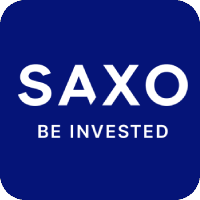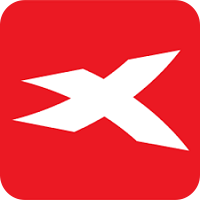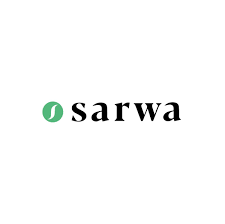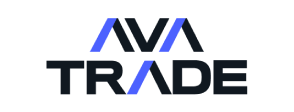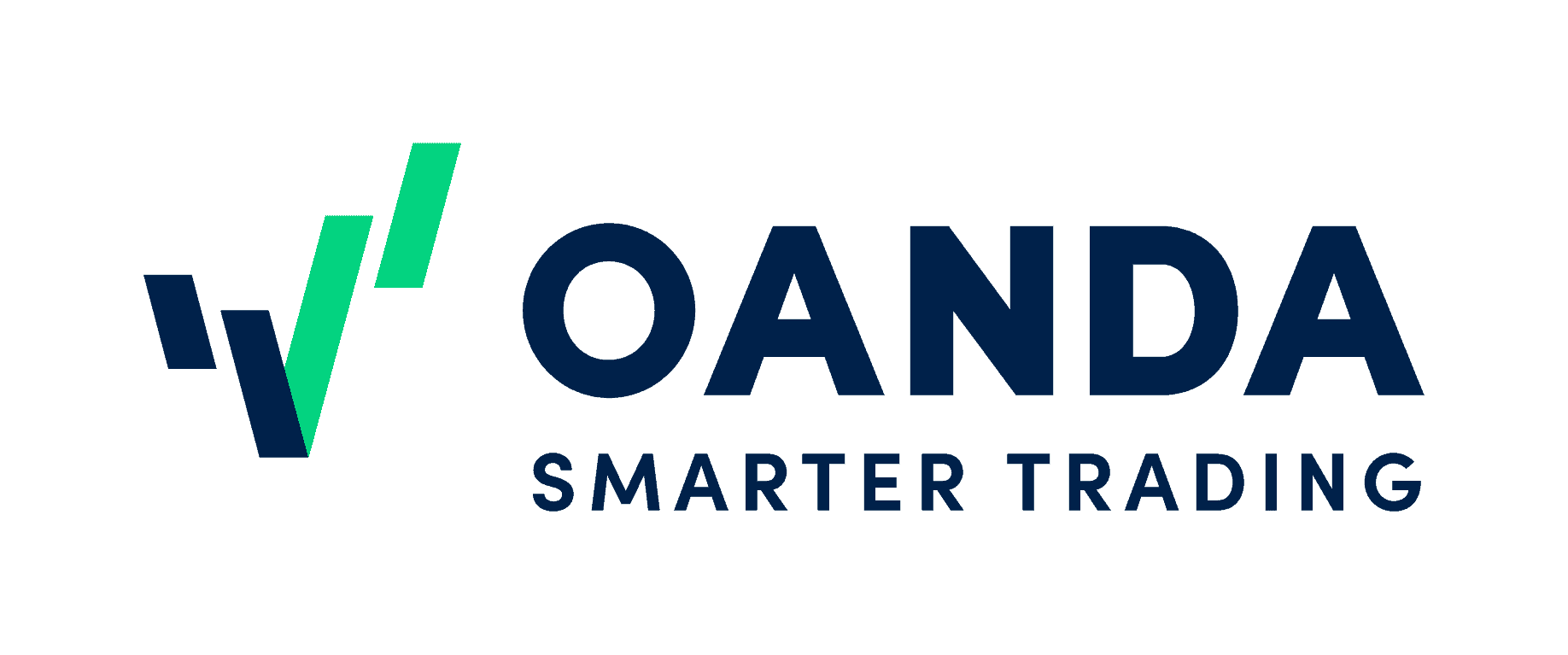The UAE’s trading scene is booming, with thousands of investors flocking to platforms for stocks, forex, and cryptocurrencies. In Q1 2025 alone, the Dubai Financial Market attracted a strong surge of 19,366 new investors, 86% of whom were foreign nationals, showcasing the rising enthusiasm for wealth-building opportunities in the UAE’s thriving economy.
Our team tested dozens of platforms with real money accounts to identify the top 10 most trustworthy and regulated online trading platforms in the UAE. With features like zero-commission trading, intuitive mobile apps, and strict oversight by authorities like the SCA and DFSA, the right platform can transform your investment experience.
Choosing a broker should not be overwhelming. This guide simplifies the process by comparing key criteria, including fees, security, and trading tools, so you can confidently select a platform tailored to your goals, whether you are a beginner or a seasoned trader. Explore our reviews, rankings, and FAQs to start investing smarter today.
Best Online Trading Platforms in UAE Rankings
 1
1Interactive Brokers 5 Your capital is at risk.
Best overall trading platform for professional traders and active investors
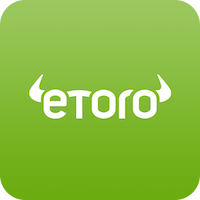 2
2eToro 4.9 Your capital is at risk.
Best for social and copy trading, commission free stock and ETF trading.
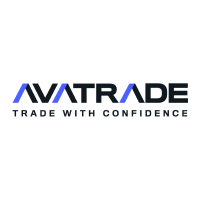 3
3AvaTrade 4.9 Your capital is at risk.
Best for forex and CFD trading beginners, great research tools, fast account opening
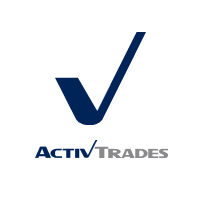 6
6ActivTrades 4.5 Your capital is at risk.
Best for CFD trading on indices and stocks. Low trading fees. Easy account opening
 7
7Trading 212 4.3 Your capital is at risk.
Best customer support. Commission-free stock and ETF trading. Low trading fees.
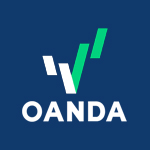 8
8OANDA 4.2 Your capital is at risk.
Best for forex and currency trading specialists. Great trading tools. Fast account opening.
Safety and regulation overview in UAE
The UAE has a robust regulatory framework to ensure fairness, transparency, and investor protection in stock trading, creating a secure environment for investors. Key regulatory bodies include:
Securities and Commodities Authority (SCA): The SCA is the primary regulatory body for securities trading in the UAE. It oversees stock exchanges, brokers, and investment funds, ensuring compliance with local laws and protecting investors from fraud. The SCA mandates brokers to maintain high operational and reporting standards.
Dubai Financial Services Authority (DFSA): The DFSA regulates financial services in the Dubai International Financial Centre (DIFC). It ensures that brokers and financial institutions adhere to stringent standards for transparency, risk management, and investor protection.
Abu Dhabi Global Market (ADGM) Financial Services Regulatory Authority (FSRA): The FSRA governs financial activities within the ADGM, providing a robust framework for stock trading and investment services. It emphasizes market integrity and investor protection.
Central bank of the UAE: The Central Bank regulates banking and financial activities to maintain the overall stability of the UAE financial system. It also plays a role in ensuring that brokers operating in the UAE comply with capital adequacy and anti-money laundering regulations.
Investor protection mechanisms: While the UAE does not have an investor protection fund like the SIPC in the U.S., regulations under the SCA, DFSA, and FSRA ensure client funds are segregated from brokers’ operational funds, reducing the risk of mismanagement.
Tier-1 International Regulators
For UAE investors considering international brokers, working with entities regulated by Tier-1 regulators ensures additional security and transparency. Examples include:
- Securities and Exchange Commission (SEC) (USA): Sets rigorous standards for financial transparency and investor protection, making it a trusted regulator for brokers offering services globally.
- Financial Conduct Authority (FCA) (UK): Enforces stringent rules for client fund segregation, market practices, and operational integrity.
- Australian Securities and Investments Commission (ASIC): Ensures high standards of operational transparency and investor safeguards for brokers.
- Cyprus Securities and Exchange Commission (CySEC): Commonly regulates international brokers serving UAE clients, with protections like the Investor Compensation Fund.
Safety and regulation comparison for Top Platforms
Here are some key areas that determine how trustworthy a broker is: who they’re top tier regulators are, investor protection they provide, and if they have any history of misconduct, or scandals. Take a look at the table below where we break down this information for you.
| Broker Name | ||
|---|---|---|
| Interactive Brokers | ||
| eToro | ||
| AvaTrade | ||
| Capital.com | ||
| Saxo Bank | ||
| ActivTrades | ||
| Trading 212 | ||
| OANDA | ||
| XTB | ||
| Sarwa |
Fees compared
Fees of selected platforms are compared in the table below. Interactive Brokers is well known for their low stock fees, Capital.com is also a great option for those interested in Forex, with competitive spreads across the board.
| Broker Name | ||
|---|---|---|
| Interactive Brokers | ||
| eToro | ||
| AvaTrade | ||
| Capital.com | ||
| Saxo Bank | ||
| ActivTrades | ||
| Trading 212 | ||
| OANDA | ||
| XTB | ||
| Sarwa |
OANDA divisions vary; check which applies. See OANDA Divisions. Spreads & fees differ by division/account.
Non-trading fees compared
Non-trading fees such as account, deposit and withdrawal fees are compared in the table below. Interactive Brokers has no hidden fees to be worried about making it easier to get signed up as a beginner.
| Broker Name | ||
|---|---|---|
| Interactive Brokers | ||
| eToro | ||
| AvaTrade | ||
| Capital.com | ||
| Saxo Bank | ||
| ActivTrades | ||
| Trading 212 | ||
| OANDA | ||
| XTB | ||
| Sarwa |
OANDA divisions vary; check which applies. See OANDA Divisions. Spreads & fees differ by division/account.
Minimum deposit, deposit methods and account opening compared
Minimum deposit, deposit method, how fast it takes to open an account, and other useful information of selected platforms are compared in the table below. Interactive Brokers scores a bit lower because of their lack of deposit methods, and lack of an islamic account, eToro has better options for this.
| Broker Name | ||
|---|---|---|
| Interactive Brokers | ||
| eToro | ||
| AvaTrade | ||
| Capital.com | ||
| Saxo Bank | ||
| ActivTrades | ||
| Trading 212 | ||
| OANDA | ||
| XTB | ||
| Sarwa |
OANDA divisions vary; check which applies. See OANDA Divisions. Spreads & fees differ by division/account.
Mobile, desktop and web trading platforms compared
Trading platforms are compared in the table below. Interactive Brokers has the best trading platforms and mobile app we tested, truly professional and comprehensive in every department.
| Broker Name | ||
|---|---|---|
| Interactive Brokers | ||
| eToro | ||
| AvaTrade | ||
| Capital.com | ||
| Saxo Bank | ||
| ActivTrades | ||
| Trading 212 | ||
| OANDA | ||
| XTB | ||
| Sarwa |
Product selection, markets and financial assets compared
Available financial products are compared in the table below. Interactive Brokers has the largest range of products on offer to trade or invest, some brokers are more specialized than others like XTB as an example of a CFD trading platform.
| Broker Name | ||
|---|---|---|
| Interactive Brokers | ||
| eToro | ||
| AvaTrade | ||
| Capital.com | ||
| Saxo Bank | ||
| ActivTrades | ||
| Trading 212 | ||
| OANDA | ||
| XTB | ||
| Sarwa |
User base of top online trading platforms in UAE compared
The number of clients per broker are compared in the table below. eToro wins in the battle of highest user count.
| Broker Name | |
|---|---|
| Interactive Brokers | |
| eToro | |
| AvaTrade | |
| Capital.com | |
| Saxo Bank | |
| ActivTrades | |
| Trading 212 | |
| OANDA | |
| XTB | |
| Sarwa |
Top online trading platforms in UAE reviewed
1. Interactive Brokers – Best for professional traders and active investors.
Min Deposit: $0
Time to open account: 1-3 Days
Overall fee class: Low to Average
Mobile app score: 5.0
International trading platform providing all asset classes.
Key Points:
- Interactive Brokers is a leading online trading platform offering access to over 90+ global markets, including stocks, ETFs, options, futures, and bonds
- Regulated by the Dubai Financial Services Authority (DFSA), it ensures a secure and compliant environment for UAE clients. It is also overseen by top regulators like FCA (UK), SEC (USA), and ASIC (Australia)
- Known for low fees, the platform is ideal for professional traders and investors looking to diversify globally
- Advanced platforms like Trader Workstation (TWS) provide powerful tools for research, charting, and trading, while Client Portal offers a simpler option for beginners
- Supports multi-currency accounts, including AED, helping UAE-based traders save on conversion costs
Pros:
- Global access to 90+ markets, making it perfect for UAE clients seeking international investment opportunities.
- Regulated by DFSA, ensuring safety and reliability
- AED support reduces currency conversion fees for UAE clients
- Low fees for US and UK stock trading, starting at $0.005 per share, making it highly cost-effective
- Platforms like TWS offer advanced tools for experienced traders, while the Client Portal caters to beginners
- No minimum deposit, making it accessible to all levels of traders
Cons:
- The advanced TWS platform may feel overwhelming for beginners, though simpler options are available
- No Sharia-compliant accounts, which may not suit some Muslim traders
- Limited Arabic-language support, which could be a challenge for some UAE clients
63.3% of retail investor accounts lose money when trading CFDs with IBKR.
2. eToro – Best for social and copy trading.
Min Deposit: $100
Time to open account: 1 Day
Overall fee class: Low
Mobile app score: 4.9
61% of retail investor accounts lose money when trading CFDs with this provider. You should consider whether you can afford to take the high risk of losing your money.
Global social trading platform.
Key Points:
- eToro is a user-friendly online trading platform known for its social trading features, allowing users to copy trades of experienced investors via the CopyTrader tool
- Regulated by Abu Dhabi Global Market (ADGM) under the Financial Services Regulatory Authority (FSRA), ensuring a secure environment for UAE clients. It is also overseen by FCA (UK), CySEC (Cyprus), and ASIC (Australia)
- Provides access to multiple asset classes, including stocks, ETFs, forex, commodities, and cryptocurrencies
- Features a demo account with $100,000 in virtual funds, ideal for beginners to practice trading risk-free
- Offers Sharia-compliant Islamic accounts, catering to observant Muslim traders
Pros:
- Social trading tools like CopyTrader and Smart Portfolios make it easy for beginners to learn and invest
- A simple and intuitive platform on both desktop and mobile, ideal for new traders
- Regulated by ADGM, ensuring compliance with UAE trading standards
- Low minimum deposit of $100, making it accessible for all users
- Provides extensive educational resources, including tutorials, webinars, and market guides
- Supports trading in popular asset classes like stocks, ETFs, and cryptocurrencies, making diversification simple
Cons:
- Higher spreads on forex compared to some competitors, which may increase costs for frequent traders
- Limited advanced tools, which may not fully meet the needs of professional traders
- No direct AED support for deposits or withdrawals, potentially leading to currency conversion fees
61% of retail investor accounts lose money when trading CFDs with this provider. You should consider whether you can afford to take the high risk of losing your money.
3. AvaTrade – Best for forex and CFD trading beginners.
Global CFD and forex platform.
Key Points:
- AvaTrade is a globally recognized online trading platform specializing in forex and CFD trading, offering access to over 1,000 financial instruments, including stocks, indices, commodities, and cryptocurrencies
- Regulated by Abu Dhabi Global Market (ADGM) under the Financial Services Regulatory Authority (FSRA), ensuring a safe and compliant trading environment for UAE clients. It is also regulated by ASIC (Australia), FCA (UK), and CySEC (Cyprus)
- Offers Sharia-compliant Islamic accounts, tailored for observant Muslim traders seeking interest-free trading
- Features advanced trading platforms like MetaTrader 4 (MT4), MetaTrader 5 (MT5), and its proprietary AvaTradeGO mobile app
- Provides a demo account for beginners to practice trading with virtual funds and access to risk management tools
Pros:
- Low minimum deposit of $100, making it accessible for new traders
- Comprehensive asset selection, including forex pairs, stocks, commodities, indices, and cryptocurrencies
- Sharia-compliant Islamic accounts support ethical trading for Muslim investors
- Advanced platforms like MT4, MT5, and AvaTradeGO are suitable for traders of all experience levels
- Regulated by ADGM, ensuring security and transparency for UAE clients
- Extensive educational materials, including tutorials, webinars, and eBooks, to support learning
Cons:
- Higher non-trading fees, such as a $50 inactivity fee after three months of no trading
- Limited customization options on the AvaTradeGO app compared to other platforms
- No direct AED base currency support, which could result in currency conversion fees for UAE traders
71% of retail CFD accounts lose money
4. Capital.com – Best for forex trading with low spreads.

Min Deposit: $20 (or currency equivalent) / $10 for bank cards & Apple Pay
Time to open account: 1 day
Overall fee class: Low
Mobile app score: 4.5
CFD trading carries risk. Capital.com is regulated by the Securities and Commodities Authority.
Global CFD and forex platform
Key Points:
- Capital.com is a globally renowned online trading platform specializing in CFD trading, offering over 7,000 financial instruments, including forex pairs, commodities, indices, and cryptocurrencies.
- Regulated by top-tier international authorities, including SCA (UAE), FCA (UK), CySEC (Cyprus), and ASIC (Australia). It complies with UAE regulations for local clients.
- Provides Sharia-compliant Islamic accounts, ensuring interest-free trading for observant Muslim clients.
- Features advanced trading platforms like MetaTrader 4 (MT4), proprietary web/app, and TradingView integration, suitable for all trading levels.
- Known for tight spreads starting from 0.6 pips and fast execution speeds, making it ideal for forex and CFD traders.
Pros:
- Low minimum deposit of $10 for bank cards and Apple Pay, making it accessible for beginners and budget-conscious traders
- Competitive pricing with low spreads and no commission on standard accounts.
- Advanced platforms like MT4, proprietary app, and TradingView integration offer professional-grade tools and analytics
- Sharia-compliant Islamic accounts cater to Muslim traders
- Comprehensive educational resources, including webinars (Webinars currently available only in English , Spanish, Italian and German), guides, and trading tools, help traders improve their skills
- Strong focus on forex trading with more than 120+ currency pairs
- Arabic support 9:00am-9:00pm Mon-Fri
Cons:
- Primarily CFD-based, with no real asset ownership
- Limited product range compared to multi-asset brokers, with no access to mutual funds or bonds
CFD trading carries risk. Capital.com is regulated by the Securities and Commodities Authority.
5. Saxo Bank – Best for advanced traders and high-volume trading.
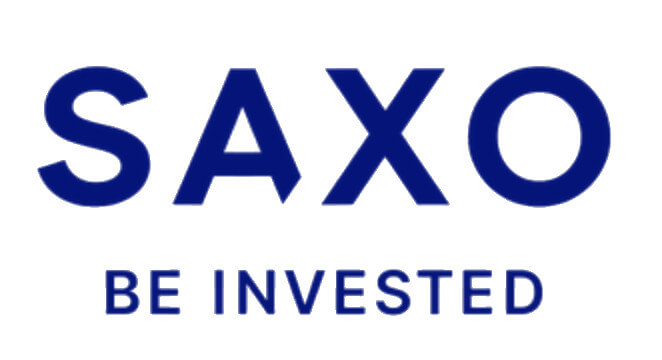
Min Deposit: $0
Time to open account: 1 Day
Overall fee class: Average to High
Mobile app score: 5.0
69% of retail investor accounts lose money when trading CFDs with this provider.
Danish Investment Bank.
Key Points:
- Saxo Bank is a premium online trading platform offering access to over 50,000 financial instruments, including stocks, ETFs, bonds, forex, options, futures, and cryptocurrencies
- Regulated by DFSA (Dubai Financial Services Authority) for UAE clients and several global authorities, such as FCA (UK) and FINMA (Switzerland), ensuring compliance with local and international standards
- Tailored for professional and high-net-worth traders
- Features cutting-edge platforms like SaxoTraderGO and SaxoTraderPRO, equipped with advanced charting, trading tools, and in-depth research
- Offers extensive market research and educational resources, helping UAE clients make informed trading decisions
Pros:
- Access to a vast range of markets and asset classes, including UAE-listed and global stocks, ETFs, and bonds
- Advanced platforms like SaxoTraderGO and SaxoTraderPRO cater to professional traders with robust analytical tools
- Regulated by DFSA, providing a secure and transparent trading environment for UAE clients
- Competitive pricing for frequent traders with tiered fee structures
- Rich educational resources, including market analysis, webinars, and guides tailored for UAE clients
Cons:
- No Sharia-compliant Islamic accounts, limiting its appeal to observant Muslim traders
- Limited support for AED as a base currency, potentially leading to currency conversion fees
- Higher trading fees compared to some competitors for smaller portfolios or less frequent traders
69% of retail investor accounts lose money when trading CFDs with this provider.
6. ActivTrades – Best for CFD trading on indices and stocks.

Min Deposit: $0
Time to open account: 1 Day
Overall fee class: Average
Mobile app score: 4.9
CFDs are complex instruments and come with a high risk of losing money rapidly due to leverage. 83% of retail investor accounts lose money when trading CFDs with this provider. You should consider whether you understand how CFDs work and whether you can afford to take the high risk of losing your money.
Global CFD and forex platform.
Key Points:
- Saxo Bank is a premium online trading platform offering access to over 50,000 financial instruments, including stocks, ETFs, bonds, forex, options, futures, and cryptocurrencies
- Regulated by DFSA (Dubai Financial Services Authority) for UAE clients and several global authorities, such as FCA (UK) and FINMA (Switzerland), ensuring compliance with local and international standards
- Tailored for professional and high-net-worth traders, Saxo Bank requires a minimum deposit of $5,000, reflecting its focus on advanced and active investors
- Features cutting-edge platforms like SaxoTraderGO and SaxoTraderPRO, equipped with advanced charting, trading tools, and in-depth research
- Offers extensive market research and educational resources, helping UAE clients make informed trading decisions
Pros:
- Low minimum deposit of $0, making it accessible for new traders
- Sharia-compliant Islamic accounts, providing ethical trading options for Muslim clients
- Competitive forex spreads and commission-free stock CFD trading
- Proprietary ActivTrader platform with intuitive design and advanced tools like risk management features and market sentiment indicators
- Extensive educational materials, including webinars, tutorials, and a knowledge center
Cons:
- Not directly regulated in the UAE, which might deter clients prioritizing local compliance
- Limited AED support, potentially leading to currency conversion fees for UAE-based clients
- Focus on CFDs may not appeal to traders seeking broader asset classes like bonds or mutual funds
- Arabic-language customer support is not widely available, which may impact accessibility for some UAE traders
CFDs are complex instruments and come with a high risk of losing money rapidly due to leverage. 83% of retail investor accounts lose money when trading CFDs with this provider. You should consider whether you understand how CFDs work and whether you can afford to take the high risk of losing your money.
7. Trading 212 – Best for commission-free stock and ETF trading.
Global stockbroker platform.
Key Points:
- Saxo Bank is a premium online trading platform offering access to over 50,000 financial instruments, including stocks, ETFs, bonds, forex, options, futures, and cryptocurrencies
- Regulated by DFSA (Dubai Financial Services Authority) for UAE clients and several global authorities, such as FCA (UK) and FINMA (Switzerland), ensuring compliance with local and international standards
- Tailored for professional and high-net-worth traders, Saxo Bank requires a minimum deposit of $5,000, reflecting its focus on advanced and active investors
- Features cutting-edge platforms like SaxoTraderGO and SaxoTraderPRO, equipped with advanced charting, trading tools, and in-depth research
- Offers extensive market research and educational resources, helping UAE clients make informed trading decisions
Pros:
- Low minimum deposit of $0, making it accessible for new traders
- Sharia-compliant Islamic accounts, providing ethical trading options for Muslim clients
- Competitive forex spreads and commission-free stock CFD trading
- Proprietary ActivTrader platform with intuitive design and advanced tools like risk management features and market sentiment indicators
- Extensive educational materials, including webinars, tutorials, and a knowledge center
Cons:
- Not directly regulated in the UAE, which might deter clients prioritizing local compliance
- Limited AED support, potentially leading to currency conversion fees for UAE-based clients
- Focus on CFDs may not appeal to traders seeking broader asset classes like bonds or mutual funds
- Arabic-language customer support is not widely available, which may impact accessibility for some UAE traders
8. OANDA – Best for forex and currency trading specialists.
US Forex platform.
Key Points:
- OANDA specializes in forex and CFD trading, offering access to 70+ currency pairs and a range of CFDs on indices, commodities, and cryptocurrencies
- Regulated by FCA (UK), ASIC (Australia), and other Tier-1 authorities, but not directly regulated in the UAE, which may concern some local clients
- Offers MetaTrader 4 (MT4) and a proprietary trading platform, catering to both beginners and experienced traders
- Features no minimum deposit requirement, making it accessible to traders with limited capital
- Competitive spreads on forex trading and robust risk management tools enhance its appeal for cost-conscious traders
OANDA divisions vary; check which applies. See OANDA Divisions. Spreads & fees differ by division/account.
Pros:
- No minimum deposit requirement, making it ideal for traders starting with smaller amounts
- Strong focus on forex trading with competitive spreads on major currency pairs
- Offers advanced trading tools, including automated trading capabilities and risk management features
- Regulated by multiple Tier-1 international authorities, ensuring a secure trading environment
- Provides extensive educational resources, such as webinars, articles, and video tutorials tailored for new traders
Cons:
- Not directly regulated in the UAE, which may deter traders seeking local oversight
- No Sharia-compliant Islamic accounts, limiting its appeal for observant Muslim traders
- Limited range of CFDs compared to competitors offering broader multi-asset trading options
- No AED support for deposits or withdrawals, potentially leading to currency conversion fees for UAE clients
74-89% of retail CFD accounts lose money
9. XTB – Best for forex and CFD trading with good platforms.
Global CFD and forex platform.
Key Points:
- XTB focuses on forex and CFD trading, offering access to 2,100+ financial instruments, including forex, indices, commodities, stocks, ETFs, and cryptocurrencies
- Regulated by FCA (UK), CySEC (Cyprus), and other international authorities, but not directly regulated in the UAE
- Features its proprietary trading platform, xStation 5, known for its intuitive design, advanced charting tools, and real-time performance statistics
- Provides Sharia-compliant Islamic accounts, making it suitable for observant Muslim traders
- Offers competitive spreads starting from 0.1 pips, making it appealing to cost-conscious traders
Pros:
- Access to 2,100+ instruments, ensuring diverse trading opportunities
- Proprietary xStation 5 platform offers a user-friendly interface with advanced tools for both beginners and experienced traders
- Sharia-compliant Islamic accounts available, supporting ethical trading for Muslim clients
- Competitive spreads and commission-free trading on specific instruments like stocks and ETFs
- No minimum deposit requirement, making it accessible to traders of all levels
Cons:
- No UAE-specific regulation, which may concern clients seeking local oversight
- Limited AED support, potentially leading to currency conversion fees for UAE-based clients
- Primarily focused on forex and CFDs, with fewer options for traditional asset classes like bonds or mutual funds
- Limited Arabic-language customer support, which might impact accessibility for some UAE traders
81% of CFD retail account lose money
10. Sarwa – Best for passive investing via ETFs.
Stock, ETF and options platform in Middle East
Key Points:
- Sarwa is a UAE-based online trading and investment platform, offering options like ETFs, robo-advisory services, and self-directed trading through Sarwa Trade
- Fully regulated by the Abu Dhabi Global Market (ADGM), ensuring compliance with local financial standards and security for UAE clients
- Offers Sharia-compliant portfolios via its robo-advisory service, catering to observant Muslim investors
- Designed for long-term investment strategies, rather than high-frequency or speculative trading, making it ideal for beginners and passive investors
- No minimum deposit requirement for Sarwa Trade accounts, making it accessible to a wide range of investors
Pros:
- Commission-free trading for stocks and ETFs, reducing costs for UAE-based clients
- Sharia-compliant Halal investment options, tailored for Muslim investors
- User-friendly platform and mobile app, ideal for beginners and long-term investors
- Backed by ADGM regulation, ensuring a secure and transparent trading environment
- Provides access to financial advisors for personalized support and guidance
Cons:
- Limited product range, focusing primarily on US stocks and ETFs, with fewer global or multi-asset options
- Not suitable for advanced or high-frequency traders seeking more comprehensive analytical tools or speculative instruments like forex or crypto
- No forex, cryptocurrency, or commodities trading, which limits opportunities for diversification
- Customer support is English-only, which might not meet the needs of Arabic-speaking clients
How to find the best online trading platform in the UAE
Selecting the right platform is crucial for traders in the UAE, whether you’re a beginner or an experienced investor. Here’s how we evaluate the best platforms for you:
- Safety and regulation: We focus on platforms regulated by trusted authorities like the Securities and Commodities Authority (SCA), Abu Dhabi Global Market (ADGM), and Dubai Financial Services Authority (DFSA). These local regulators ensure a secure, transparent, and compliant trading environment tailored for UAE clients. Platforms regulated by top-tier international authorities like the FCA (UK) or ASIC (Australia) add an extra layer of security and credibility, especially for accessing global financial markets like forex, CFDs, and derivatives.
- Fees: The best platforms offer competitive and transparent fee structures across various financial instruments, including forex, CFDs, ETFs, and global stocks. We look for low trading commissions, tight spreads, and clear pricing policies. Platforms that minimize currency conversion fees and withdrawal costs are especially valuable for UAE clients trading in diverse markets.
- Non-trading fees: Hidden fees, such as account maintenance charges, inactivity fees, or high withdrawal costs, can eat into your profits. We prioritize platforms that keep these fees minimal or eliminate them altogether. Favorable currency exchange rates and transparent financial policies also help UAE traders manage costs effectively, especially when investing in forex, indices, or other global assets.
- Deposit, withdrawal, and account opening: Platforms with a fast and streamlined account setup process are a big advantage. We value those that support local payment methods, such as UAE bank transfers and credit cards, along with global payment gateways. Reliable deposit and withdrawal processes ensure convenience and smooth financial transactions, making these platforms more user-friendly for UAE clients.
- Mobile app and trading platforms: The quality and reliability of a platform’s mobile and desktop interfaces are essential. The best platforms are intuitive and feature-rich, offering tools like real-time market alerts, advanced charting tools, and quick trade execution. Platforms that enable multi-asset trading across forex, CFDs, ETFs, and global financial instruments provide greater flexibility for UAE traders managing diverse portfolios.
Taxation for online trading in the UAE
Understanding tax implications is important for traders in the UAE:
No personal income tax: The UAE does not impose personal income tax on residents. This means profits from stock trading, whether short-term or long-term, are not subject to taxation.
Dividend income: Dividends from UAE-listed companies are generally tax-free for residents. However, dividends from international stocks may be subject to withholding taxes in the source country. Investors should check for double taxation treaties between the UAE and the relevant country to determine if tax relief is available.
Corporate tax implications: Starting in 2023, businesses generating more than AED 375,000 in annual profits may be subject to corporate tax in the UAE. If stock trading is part of a business operation, the profits might fall under this tax regime. Consulting a tax advisor is recommended for business accounts.
Currency conversion considerations: While there are no specific taxes on currency conversions in the UAE, fluctuations in exchange rates when trading international stocks can indirectly impact profitability.
International tax obligations: UAE residents trading in foreign markets should be aware of tax obligations in the respective countries, such as capital gains or dividend taxes. Consulting with a tax advisor can help clarify any cross-border tax requirements.
The UAE’s tax environment is highly favorable for individual traders, but businesses and those trading international stocks should seek professional advice to navigate specific tax rules effectively.
How to Invest in global markets from the UAE
Follow these simple steps to start investing and trading in the UAE:
- Choose a trading platform: Select a platform regulated by SCA, ADGM, or DFSA in the UAE, or a globally trusted platform offering access to forex, ETFs, indices, and international markets. Regulation ensures safety and compliance for your investments.
- Check local requirements: For UAE-listed assets, such as those on the Dubai Financial Market (DFM), Abu Dhabi Securities Exchange (ADX), or NASDAQ Dubai, you might need an Investor Number (NIN). Verify the documentation required for trading locally.
- Open an account: Submit the necessary documents, including Emirates ID, passport, proof of address, and bank details. Many platforms offer a quick online registration process, allowing you to start trading within days.
- Fund your account: Deposit funds using UAE-friendly methods like bank transfers, credit cards, or e-wallets. Opt for platforms that support AED transactions to avoid unnecessary currency conversion fees.
- Understand the market: Educate yourself about trading in forex, ETFs, indices, and global markets. Stay informed by researching market trends, economic news, and investment strategies to make well-informed decisions.
- Set goals: Define your investment objectives, whether it’s for growth, income, or a mix of both. Choose a trading strategy that aligns with your goals and risk tolerance.
- Start trading: Use your platform’s desktop or mobile app to begin trading in forex, ETFs, indices, or UAE-listed assets. Take advantage of trading tools for efficient and informed decisions.
- Manage risks: Diversify your portfolio across various asset classes and markets. Utilize tools like stop-loss orders to limit potential losses and protect your capital.
- Track your investments: Regularly monitor your portfolio’s performance. Adjust your investment strategy as needed and stay updated with market developments to capitalize on opportunities.
- Withdraw or reinvest: Decide whether to withdraw profits for personal use or reinvest them to grow your portfolio over time. A disciplined reinvestment approach can compound your returns effectively.
By following these steps, UAE traders can confidently access global markets and build a diversified investment portfolio.
Which types of trading are legal in the UAE
In the UAE, trading is regulated by authorities like the Securities and Commodities Authority (SCA), the Abu Dhabi Global Market (ADGM), and the Dubai Financial Services Authority (DFSA). These regulatory bodies ensure fairness, transparency, and investor protection. Here are the types of trading allowed in the UAE:
- Stock trading: Buying and selling shares of companies listed on UAE exchanges like the Dubai Financial Market (DFM) and the Abu Dhabi Securities Exchange (ADX), as well as international markets through approved brokers.
- Forex trading: Trading currency pairs is legal through brokers regulated by the SCA, ADGM, DFSA, or international regulators authorized to operate in the UAE.
- Derivatives trading: Trading in futures and options on regulated platforms, including commodities and financial instruments, is permitted under UAE law.
- Commodity trading: Trading physical commodities like gold, silver, and oil is legal, often conducted on platforms like the Dubai Gold and Commodities Exchange (DGCX).
- Mutual funds and bonds: Investing in mutual funds, government bonds, and corporate bonds is available through licensed brokers and financial institutions.
- Cryptocurrency trading: While not fully regulated, cryptocurrency trading is allowed under certain conditions through platforms approved by the UAE’s regulators.
It is essential to use brokers or platforms regulated by UAE authorities or internationally recognized bodies authorized to operate locally. This ensures secure, transparent, and compliant trading.
Conclusion
After evaluating top platforms for UAE clients, we believe Interactive Brokers stands out as the best online trading platform in the UAE for 2025.
Its access to over 90 global markets, DFSA regulation, and low fees make it ideal for professional and active investors. We particularly like the support for AED-based accounts, which minimizes conversion costs for UAE traders. The advanced Trader Workstation (TWS) platform offers powerful tools for portfolio management, while the intuitive mobile app ensures a smooth experience for traders of all levels.
We think Interactive Brokers excels in providing a secure, versatile, and cost-effective platform for UAE investors seeking global diversification. This combination of features makes it our top recommendation for 2025.
Best Online Trading Platform in UAE Summary
 1
1Interactive Brokers 5 Your capital is at risk.
Best overall trading platform for professional traders and active investors
 2
2eToro 4.9 Your capital is at risk.
Best for social and copy trading, commission free stock and ETF trading.
 3
3AvaTrade 4.9 Your capital is at risk.
Best for forex and CFD trading beginners, great research tools, fast account opening
 6
6ActivTrades 4.5 Your capital is at risk.
Best for CFD trading on indices and stocks. Low trading fees. Easy account opening
 7
7Trading 212 4.3 Your capital is at risk.
Best customer support. Commission-free stock and ETF trading. Low trading fees.
 8
8OANDA 4.2 Your capital is at risk.
Best for forex and currency trading specialists. Great trading tools. Fast account opening.
FAQ
What is an online trading platform?
An online trading platform is a digital tool or app that allows users to buy, sell, and manage financial instruments like stocks, ETFs, mutual funds, forex, and more. Platforms provide features such as market analysis, portfolio tracking, and trade execution, enabling users to access both local (DFM, ADX) and international markets conveniently.
What is an online broker?
In the UAE, an online broker provides access to trading services through a platform, enabling users to trade assets such as stocks, ETFs, and forex. These platforms offer tools for market analysis, portfolio monitoring, and trade execution, catering to both beginners and experienced traders.
What is a stockbroker?
A stockbroker is an entity or individual that facilitates the buying and selling of stocks and other investment assets. There are three types:
- Full-service brokers manage investments and offer financial advice.
- Discount brokers execute trades and may provide basic recommendations.
- Online brokers enable self-directed trading through platforms or apps.
What should I look for when choosing a platform in the UAE?
- Regulation: Ensure the platform is licensed by authorities like the SCA, ADGM, or DFSA.
- Fees: Choose platforms with transparent pricing, low commissions, and minimal withdrawal or currency conversion fees.
- Trading tools: Opt for user-friendly platforms with advanced tools, mobile compatibility, and access to diverse markets.
- Asset variety: Select platforms offering stocks, ETFs, forex, and global markets.
- Customer support: Look for platforms with responsive support in English and Arabic.
Are UAE trading platforms safe?
Platforms regulated by the SCA, ADGM, or DFSA are considered secure due to strict operational standards. Platforms regulated by Tier-1 authorities like FCA or ASIC also provide a safe trading environment.
What fees should I expect when trading in the UAE?
You may encounter:
- Trading fees (commissions or spreads)
- Account maintenance charges
- Currency conversion fees for global markets
- Withdrawal fees
What documents do I need to trade in the UAE?
- Emirates ID or passport
- Proof of residence (utility bill or rental agreement)
- Bank account details
- National Investor Number (NIN) for local exchanges like DFM and ADX
Can UAE clients trade internationally?
Yes, UAE clients can trade global markets via platforms regulated locally or internationally. Ensure the platform offers the desired markets and complies with UAE regulations.
How do I manage risks when trading from the UAE?
- Use tools like stop-loss orders.
- Diversify across sectors and markets.
- Stay informed about economic trends.
- Choose platforms offering risk alerts and negative balance protection.
What is negative balance protection?
This feature ensures traders cannot lose more than their account balance, protecting them during volatile market swings.
What are ETFs, and why invest in them?
ETFs are baskets of assets traded like stocks. They offer:
- Diversification
- Low costs
- Ease of trading They’re popular among UAE investors for accessing global markets.
How can I ensure my online trading is secure?
- Use strong passwords and two-factor authentication.
- Trade on regulated platforms with encrypted systems.
- Monitor account activity regularly.
What is day trading, and is it suitable for me?
Day trading involves buying and selling within the same trading day. It’s high-risk and time-intensive, best for experienced traders.
What is a brokerage account, and why do I need one in the UAE?
A brokerage account allows you to trade assets like stocks, ETFs, and forex, providing access to local and global markets.
Are trading fees negotiable in the UAE?
Some platforms may offer negotiable fees for high-volume traders. Contact your platform to inquire about discounts.
What is margin trading, and is it available in the UAE?
Margin trading allows you to borrow funds for larger trades, increasing potential gains and risks. It’s available through platforms authorized for leveraged trading.
Do platforms in the UAE offer sharia-compliant trading?
Yes, many platforms provide Islamic accounts with no interest charges, catering to observant Muslim traders.
Which local stocks can I trade in the UAE?
You can trade stocks listed on:
- Dubai Financial Market (DFM)
- Abu Dhabi Securities Exchange (ADX)
- NASDAQ Dubai
What is the National Investor Number (NIN), and why is it important?
The NIN is required for trading on DFM and ADX. You can obtain it by registering with these exchanges.
Do UAE residents pay taxes on stock trading?
No, UAE residents are exempt from personal income tax on trading profits. However, taxes may apply to international investments based on the source country.
What are the most common assets traded in the UAE?
- Stocks
- ETFs
- Forex
- Commodities (e.g., gold)
- Mutual funds
- Derivatives (futures and options)
Can I trade cryptocurrencies in the UAE?
Yes, but only through regulated platforms like eToro or UAE-authorized platforms offering crypto assets.
What trading hours should I be aware of?
UAE stock markets operate Sunday to Thursday, typically from 10:00 AM to 3:00 PM UAE time.
What are the biggest stock exchanges in the UAE?
- Dubai Financial Market (DFM)
- Abu Dhabi Securities Exchange (ADX)
- NASDAQ Dubai
What are the different types of trading accounts in the UAE?
- Local accounts: For UAE residents to trade locally.
- Bank-linked accounts: Managed through UAE banks for self-directed or professional investing.
- Online platforms: For self-directed trading in global markets.
Can I invest in the UAE stock market as a tourist or expat?
Yes, as long as you have a valid NIN and fulfill platform requirements.
What is the difference between forex and stock trading?
- Forex trading involves currency pairs and is often short-term.
- Stock trading involves company shares, suitable for long-term investment or dividend income.
What is algorithmic trading?
Algorithmic trading uses automated systems to execute trades based on pre-set criteria. Many platforms, like Interactive Brokers, offer this feature for advanced traders.
What is a demo account, and why should I use one?
A demo account lets you trade with virtual funds, allowing beginners to practice and test strategies without financial risk.
Everything you find on Business24-7 is based on trustworthy data and impartial analysis. We combine over 11 years of financial expertise with valuable reader feedback to provide accurate insights. Learn more about our methodology.
Disclaimer
eToro is a multi-asset platform which offers both investing in stocks and cryptoassets, as well as trading CFDs.
Please note that CFDs are complex instruments and come with a high risk of losing money rapidly due to leverage. 61% of retail investor accounts lose money when trading CFDs with this provider. You should consider whether you understand how CFDs work, and whether you can afford to take the high risk of losing your money
This communication is intended for information and educational purposes only and should not be considered investment advice or investment recommendation. Past performance is not an indication of future results.
Copy Trading does not amount to investment advice. The value of your investments may go up or down. Your capital is at risk.
Crypto assets are complex and carry a high risk of volatility and loss. Trading or investing in crypto assets may not be suitable for all investors. Take 2 mins to learn more
eToro USA LLC does not offer CFDs and makes no representation and assumes no liability as to the accuracy or completeness of the content of this publication, which has been prepared by our partner utilizing publicly available non-entity specific information about eToro.




